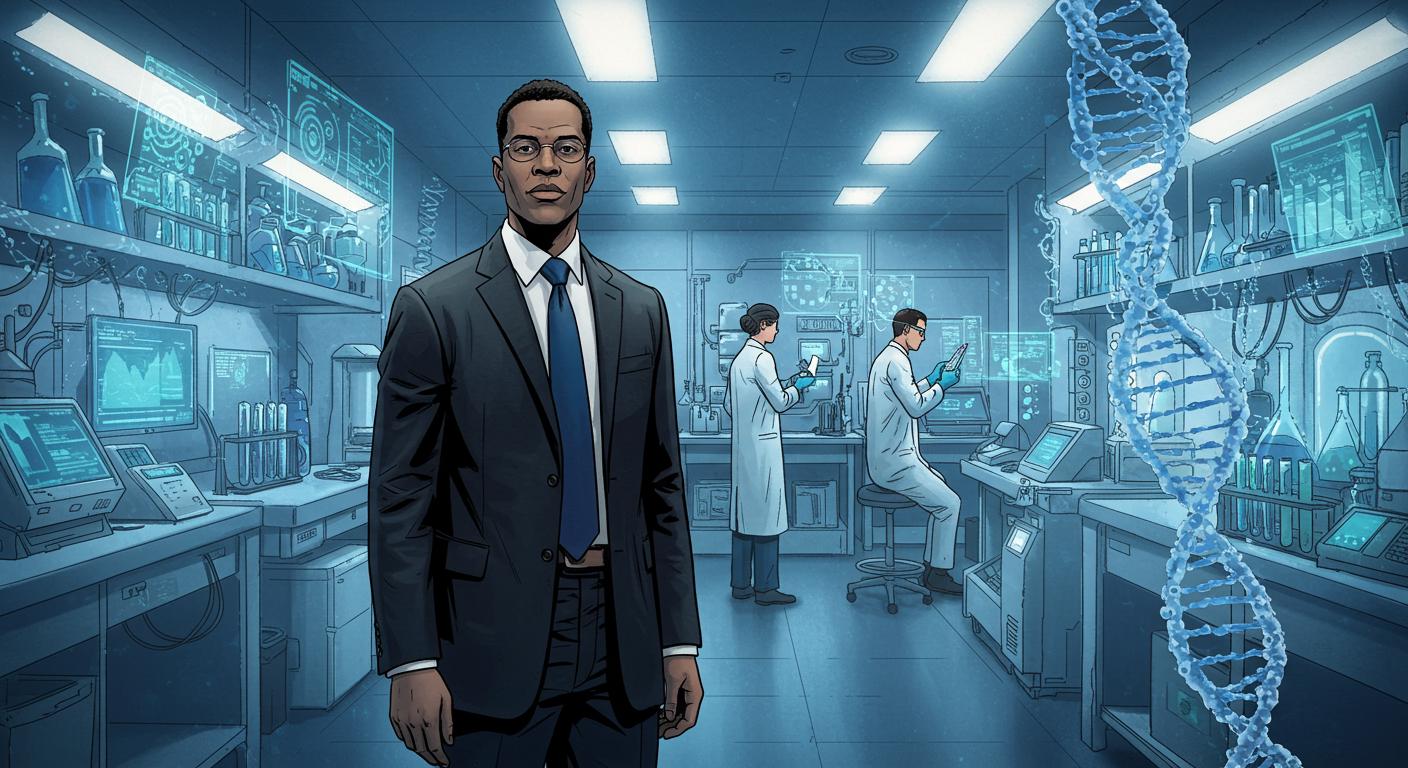If you’ve ever dabbled in the strange pastime of tracking Silicon Valley’s more dramatic rise-and-fall stories, the name Elizabeth Holmes probably still rings a few warning bells—preferably with a retro-futuristic “ding” straight out of a dimly lit Theranos demo room. Now, mere years after Holmes’ spectacular implosion and mid-11-year vacation at a Texas federal facility, her partner Billy Evans is apparently circling the same forbidden biotech fruit, with Holmes passing along her “wisdom” from the other side of the barbed wire. As NPR reports, Evans has quietly raised millions for a new startup called Haemanthus—Greek for “blood flower,” because subtlety is evidently out of fashion.
A Familiar Plot, New Cast?
Described in NPR’s reporting based on two sources familiar with the endeavor, Haemanthus is an artificial intelligence company hoping to develop products for use in medical settings. Funding, so far, has come largely from Evans’ friends, family, and supporters. Patent and incorporation records reviewed by NPR indicate that the company has a core staff of about a dozen people, some of whom worked previously with Evans at Luminar Technologies. For those in the mood for drama, the plot features more than just fresh faces—the tech itself aims to commercialize Raman spectroscopy, a type of light detection tool known for applications in diagnosing certain cancers and ALS, as well as, oddly enough, in identifying improvised explosives.
According to a January patent cited by NPR, Haemanthus’ technology is designed to test various types of biological material: sweat, urine, saliva, and small samples of blood. But as one source described to NPR, what the final consumer product will actually look like remains an open question.
Isn’t there something familiar about reading phrases like “not yet officially launched” and “details are under wraps”? After all, isn’t this the go-to script for every Silicon Valley story that involves whispers about transforming medicine just as soon as the last NDAs are signed?
Holmes’ Advisory Role: The Unclear Contributions
NPR also highlights a curious subplot: Holmes, currently serving her sentence at a federal facility in Bryan, Texas, is supporting Evans by providing advice on the startup, according to sources with direct knowledge of Haemanthus. The specifics, though, remain murky—the outlet notes the exact nature of Holmes’s counsel hasn’t been publicly detailed.
It’s almost poetic, in an odd sense, to see Holmes advising in the same field that led to her conviction and headline-grabbing fall from grace. Public filings and a 2018 SEC settlement, as outlined by NPR, bar her from serving as an officer or director of any public company for a decade. However, a source familiar with Haemanthus told NPR she is not expected to officially help run the company, and there’s no indication she holds any formal role.
Holmes’ Post-Prison Ambitions
The intrigue doesn’t end at informal advice. Earlier in the NPR report, it’s mentioned that Holmes, in a February interview with People magazine, shared her intentions to resume her career in biotech after serving her sentence, and even claimed to have been writing patents from behind bars. Ambitious? Certainly. Just a tad ironic, too.
NPR further notes the ongoing legal coda: just this week, a federal appeals court upheld her conviction, even as news of Haemanthus’s fundraising efforts bubbles up. Holmes’ ability to remain a presence in biotech strategy—even indirectly—seems almost a Silicon Valley in-joke at this point.
A Rose by Any Other Name
According to information compiled from NPR’s reporting and company documents, Haemanthus wants to take diagnostic technology usually confined to research labs and make it readily available (and affordable) for broader patient use. Exactly what this will mean for the end consumer remains a mystery. When contacted by NPR, neither Haemanthus nor Holmes’s attorney provided any comment—a nod, perhaps, to a tradition of startups preferring the promise of unveiling over the risk of early details.
The Inevitable Question Mark
So, here we are: a mysterious biotech hopeful, with millions already backing it, some familiar names behind the curtain, and a technological premise that skates between potential and déjà vu. Is this the Silicon Valley spirit of optimism and reinvention at its best, or is it further proof that the ecosystem never quite learns from its boo-worthy curtain calls?
As NPR’s report documents, the seriousness of Holmes’ fraud conviction and SEC ban hasn’t completely stemmed the flow of support—financial or otherwise—for the next act in this saga. The question lingering in the background: can Evans—advised by Holmes, unofficially at least—steer Haemanthus away from the fate that befell Theranos, or is this simply the blood flower blooming from well-fertilized ground?
Stranger things have happened. Sometimes, the most fascinating stories are the ones that invite you to watch closely—and, perhaps, keep one eyebrow gently raised.







